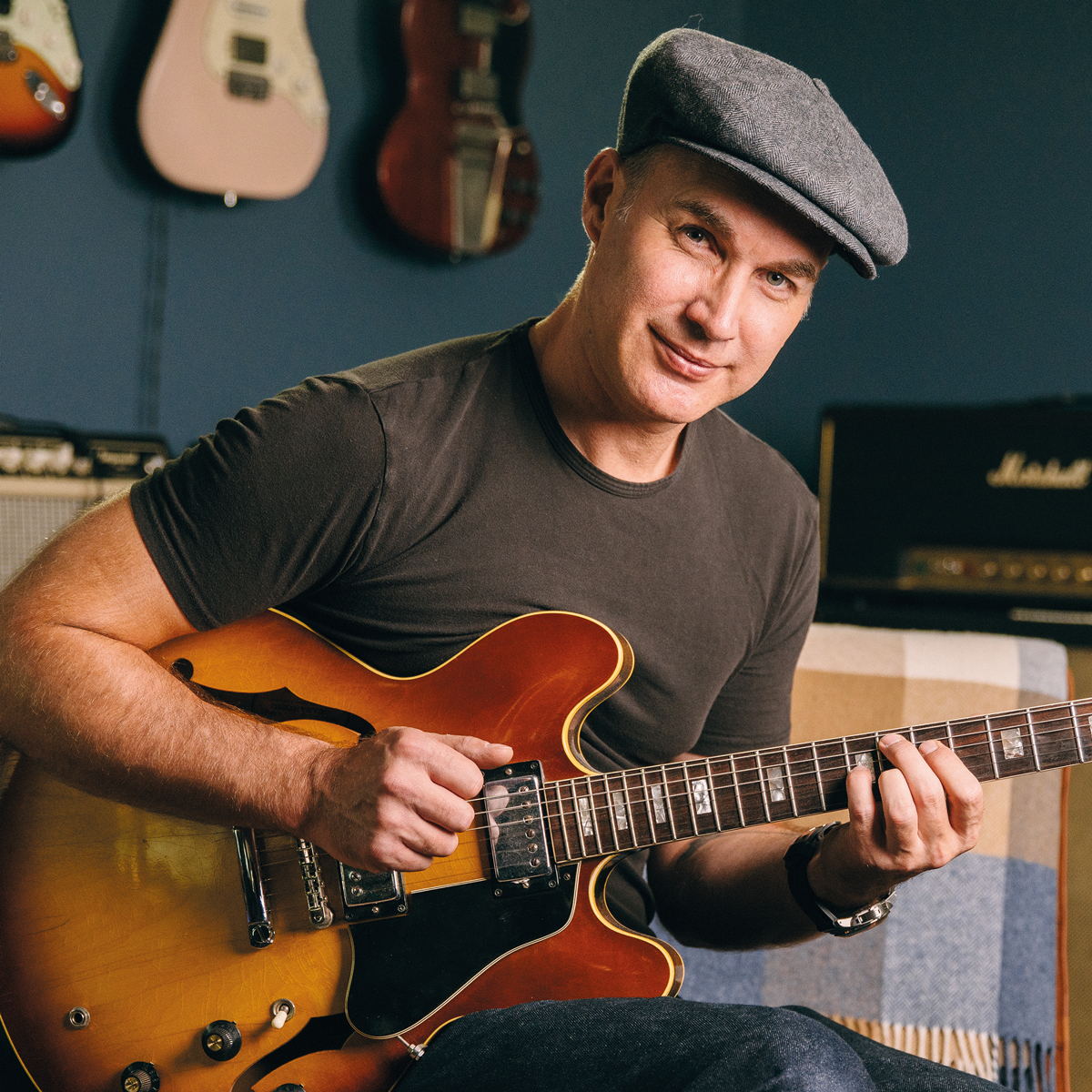Why learning songs is just as important as practicing technical exercises
Guitar exercises are important and will always have their place, but when you learn songs, you can extract the licks and techniques, use them in other contexts, and have a lot of fun, too

Last week I stumbled onto a guitar forum and was pretty shocked by many questions about practice and direction and I realised that many people do not realise the power of learning songs. I don’t notice the same problems within my own online community, probably because I try to emphasise this idea a lot in my courses. But let’s break it down.
Most people prefer learning songs to practicing technical exercises. There are benefits to doing technical stuff, working with the metronome and things like that. But exercises should be targeted very specifically for skills that will enable you to play songs you want to learn.
I recommend that beginners stick with a program and trust the process. When you know very little it can be hard to make sound value judgments and there may be groundwork skills being developed that you’re just not aware of. But you should still be aware of the songs you want to play and the skills needed to play them, and adapt your practice regime accordingly.
So before deciding on any practice routine you should consider the songs you want to play. The style and the content of the songs you love. Hopefully there will be some that are achievable, some that will take time and effort and some that are way too hard at first.
So here’s the deal. When you learn a song, any song, think about what the components are to that song and the skills that you are developing by learning and practicing it. The big deal here is extracting the key skills and concepts and using them in other ways.
Easy songs with basic chords and strumming will teach you about smooth and accurate chord changes – strumming, time feel, dynamics, and more. These skills are foundations that will develop as you grow – and working on them will help everything you play. Don’t skip songs because they are ‘too easy'. If you love the song, use it to learn excellence.
As songs get a little more complicated they might include single-note riffs, targeting notes while strumming, fingerstyle patterns, syncopated rhythms, solos. It goes on.
Get The Pick Newsletter
All the latest guitar news, interviews, lessons, reviews, deals and more, direct to your inbox!
The big deal here is knowing what skills you get out of each song you learn. Extracting each skill or concept and then exploring these ‘blocks’ outside of the original song is the key to using them as a vehicle for your musical development, rather than just ‘learning the song’.

Let's take some examples. If you learned a song by Mark Knopfler, it’s very likely to use triad chord shapes (think So Far Away or Sultans of Swing). Learning the song is fun and cool – but extracting the triad shapes and learning to use them in different contexts expands your rhythm skills and will give you loads of new options when making up your own grooves. When you encounter them in a different song you’ll feel confident with them too.
What about a fingerstyle pattern? Take Death Cab For Cutie's I Will Follow You Into The Dark. Great song and probably you will have spent time learning that pattern solid enough to play it. So the next step should be extracting that fingerstyle pattern and trying it on some other songs.
Get creative. Don’t waste all that effort to just learn one song. Use it to grow.
What about that classic blues solo you spent weeks on? Don’t be just playing it all the way through over and over. It’s a great start to be doing that, and I’d bet that you nail it that way – but once you have it under your fingers I’d recommend extracting each individual lick one at a time and then explore using it in an improvised context.
One great solo, let’s say Eric Clapton's Crossroads solo, will have 30 or more licks to extract and explore; doing so will explode your blues vocabulary.
One example that I didn’t do, but will do one day when I have more free time and the jazz bug, is Coltrane’s Giant Steps solo. I transcribed it way back in 1996 – spent days and days working on it, getting it up to speed. But there’s not a snowdrop's chance in hell of me improvising over those changes because I didn’t extract the licks or learn to use them outside of the set solo.
If you want to learn how to finger tap, learn to play Eruption (Van Halen) or Midnight (Joe Satriani) rather than practicing some generic boring exercise. You’ll develop the technique and also a great party piece
You can also reverse engineer this process and find songs that use a technique that you want to learn. If you want to learn how to finger tap, learn to play Eruption (Van Halen) or Midnight (Joe Satriani) rather than practicing some generic boring exercise. You’ll develop the technique and also a great party piece. Want to learn triad shapes? Check out Substitute (The Who) or Riders On The Storm (The Doors). Want to rock powerchords? Then learn stuff by Green Day, The Offspring, Nirvana or Metallica.
This concept is particularly potent for extracting licks and jazz lines for improvising musicians but it really works with any technique or concept.
Practicing songs is always going to be more fun than generic exercises. Doing these when they’re targeting a weakness or skill that needs developing, is a great thing – but do exercises that will help you play songs you love, not just because someone said you should. Have fun!
Justin Sandercoe – aka JustinGuitar – is one of the world's foremost guitar tutors. His learning platform, JustinGuitar, was founded in 2003, and its launch on YouTube in 2006 quickly made Justin's lessons some of the most popular on the web. Today, JustinGuitar has over 1.5m subscribers on YouTube, and the website is home to over 1,300 free video guitar lessons. Tommy Emmanuel, Mark Knopfler, Steve Vai and Brian May are among the A-list names who recommend Justin's guitar courses.
"Upgrading from your entry-level acoustic opens the door to an entirely new world of tonewoods, body shapes, and brands": 6 signs it's time to upgrade from your first acoustic guitar
"I'm past my prime": 5 common excuses for not learning the guitar – and 5 body and mind-boosting reasons you should


![John Mayer and Bob Weir [left] of Dead & Company photographed against a grey background. Mayer wears a blue overshirt and has his signature Silver Sky on his shoulder. Weir wears grey and a bolo tie.](https://cdn.mos.cms.futurecdn.net/C6niSAybzVCHoYcpJ8ZZgE.jpg)

![A black-and-white action shot of Sergeant Thunderhoof perform live: [from left] Mark Sayer, Dan Flitcroft, Jim Camp and Josh Gallop](https://cdn.mos.cms.futurecdn.net/am3UhJbsxAE239XRRZ8zC8.jpg)





